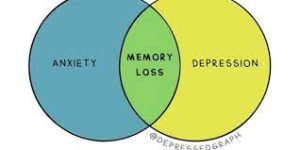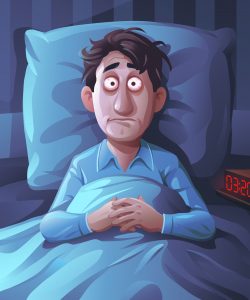Anxiety affects around 40 million adult Americans. It’s one of the most widespread mental illnesses. Anxiety is a cycle of continual dread over unchangeable conditions that is considerably more than merely being anxious about something. Anxiety manifests itself in a variety of ways, both physically and psychologically. Memory loss is one of these issues.
What does anxiety do to memory? And why?
First and foremost, anxiety is unlikely to cause you to wake up with complete amnesia. It doesn’t seem to affect long-term memory. It’s your working and short-term memory that is at risk of being enslaved by anxiety. Anxiety is a never-ending loop. People who suffer from it frequently feel stuck in their thoughts, continually replaying possible events that have yet to occur.
This also causes hypervigilance. Because anxiety hypervigilance loops may last an endless amount of time, being caught in one can be highly psychologically exhausting. In addition, these hypervigilance cycles can lead to cognitive exhaustion, resulting in memory loss in certain people.

There’s a reason why moderate anxiety-related memory loss is referred to as “brain fog.” You could forget things like instructions, how to do work, conversations you’re sure you had, engagement and deadline dates, the material you’ve just read, and so on. Anxiety-forgetfulness is frequently accompanied by feelings of perplexity, dissociation, and concentration difficulties.
There are several neurobiological causes for anxiety’s interfering with short-term memory:
Elevated cortisol levels
Cortisol is a stress hormone that helps your body cope with a variety of situations. It’s part of your “fight-or-flight” reaction, alongside adrenaline.
Cortisol regulation in the brain is responsible for both your mental and physical reactions to stress. For example, when you’re in a stressful scenario, do you notice how quickly your heart rate rises? Cortisol is the hormone responsible for this. Cortisol, like good stress reactions, isn’t always a negative thing. According to studies, cortisol and our stress reaction have been linked to how we construct memories.
In certain situations, mild anxiety might even help you recall (primarily bad) information. This is reasonable.
However, too much cortisol is harmful. According to research, high amounts of cortisol, especially over a lengthy period, might impair memory retention. Living with anxiety is akin to boarding the stress train. Cortisol levels skyrocket as a result.
Sleep deprivation

Anxiety problems might disrupt your sleep schedule. Catching some Zzz’s and obtaining a good night’s sleep is difficult once your thoughts ride the dread-and-worry carousel. To make matters worse, a lack of sleep can lead to anxiety issues.
If you’ve ever seen the movies “Fight Club” or “The Machinist,” you know how insomnia and sleep deprivation can make you act strangely. So it should come as no surprise that memory loss might play a role in this. As a result, anxiety-induced sleep deprivation might undoubtedly add to your anxiety memory fog.
Anxiety screws with your memory
Anxiety has discovered various ways to interfere with your memory, not just messing with your neurochemistry and lowering your sleep time.
Hypervigilance may make it difficult for your brain to remember and recall unrelated information to your anxiety focus. There’s also the way worry may maintain itself in your mind in a constant motion-like state. As a result, many people who suffer from anxiety become concerned about their fear, resulting in a never-ending loop.
Memory loss is concerning since it might indicate significant brain disorders. Memory loss and confusion are frequently used as fear triggers or focal points. Your anxiety causes memory loss, which causes concern about memory loss, which causes even more memory loss and stress.
Memory repression
One way your mind protects itself from trauma is by repressing memories. If anxiety-inducing memories cause you much pain, your brain may conclude that the best answer is to erase or hide them.
Your mind can block recollections of specific events entirely or partially. As a result, every memory or scenario might provoke anxiety in people who suffer from diseases like generalized anxiety disorder (GAD).This might cause vast portions of memory may be missing. As you would expect, this might make day-to-day living a little more challenging to manage (which in turn can cause more anxiety).
When your mind hides memories from you, it may have good motives. In the long term, though, this may cause more harm than benefit. Getting rid of the memories isn’t the same as dealing with your emotional reactions to them.
You might also like to read about What Would Happen To You If You Have Sleep Deprivation.









